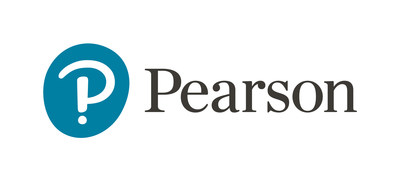$1.1 Trillion at Stake: Pearson Report Urges Action, Solutions for Skills Gap
Rhea-AI Summary
Pearson (PSON.L) released a report titled 'Lost in Transition: Fixing the Skills Gap' at the World Economic Forum Annual Meeting, revealing that inefficient career transitions and learning gaps cost the U.S. economy $1.1 trillion annually (5% of GDP). The research warns of a potential global 'skills chasm' between employer needs and employee capabilities.
The report emphasizes two critical actions: prioritizing 'learning to learn' and developing modern skilling pathways. The first focuses on metacognitive skills that can accelerate yearly learning progress by seven months. The second promotes work-based learning and estimates the U.S. could gain $40 billion annually by reducing transition time from education to work by six weeks.
The research, based on Pearson's Faethm data, explores solutions including virtual reality for career exploration, lifelong learning financing, digital wallets for skills tracking, and AI-powered career mapping.
Positive
- Potential $40 billion annual gain by reducing education-to-work transition time
- Seven-month acceleration in yearly learning progress through metacognitive skills implementation
- Partnership developments with Microsoft, Credly, and Degreed for AI and skills validation
Negative
- $1.1 trillion annual losses (5% of GDP) due to inefficient career transitions
- Growing gap between employer needs and employee capabilities
News Market Reaction – PSO
On the day this news was published, PSO gained 0.38%, reflecting a mild positive market reaction.
Data tracked by StockTitan Argus on the day of publication.
- Demographic shifts, technological advances, unprepared workforce put economies at risk of "skills chasm"
- Annual
U.S. earnings losses of$1.1 trillion - "Learning to learn" and modern skilling pathways are critical to unlocking economic and emotional gains for individuals and businesses
The accompanying report, "Lost in Transition: Fixing the Skills Gap," released today at the World Economic Forum Annual Meeting, warns of a potential global "skills chasm" between employer needs and employee capabilities, and urgently calls for a fundamental shift in approaches to learning and skills development.
The full report details the economic and personal impact of learning gaps during major career transitions - from school to work, layoffs or business shifts, and disruptions caused by AI automation. It also highlights two critical imperatives for immediate, collaborative action across the education and business sectors: the need to learn more effectively and the development of modern skilling pathways that evolve with the future of work.
Prioritize "Learning to Learn"
Improving the way people learn is stressed as vital for an adaptive workforce ready for continual upskilling, career pivots and personal career fulfillment. Pearson advocates for "learning to learn" becoming a core focus across education and corporate training, emphasizing metacognitive skills such as goal setting, critical thinking and self-regulated learning. A cited study found that these approaches can accelerate yearly learning progress by seven months.
Develop Clear Modern Skilling Pathways
Moving beyond outdated linear career paths, Pearson encourages reimagined dynamic and efficient skilling pathways that flex to future workforce needs. It promotes work-based learning like apprenticeships to align skills with real-world demands, tailored support, and mentorships. It estimates the
Implementing such approaches could unlock trillions for economies while creating life-changing opportunities for millions worldwide.
"There's real potential for the skills gap to become a chasm if we don't act. The traditional education that slingshots people into their careers is no longer enough. Learning how to learn will become the focus for students, workers and employers to help people adapt and re-skill throughout their careers and their learning journey," said Pearson CEO Omar Abbosh. "We can help prevent the skills gap from becoming a skills chasm when employers, educators, workers and government partner to find solutions."
The full report and its findings are based on quantitative analysis including data from Pearson's Faethm, literature reviews and interviews with leading experts. Among other topics explored:
- Virtual reality for career exploration
- Lifelong learning financing
- Digital wallets for robust skills tracking
- AI-powered career mapping
- The creation of a common skills language
- Assessments for career progression and wage growth
Read Pearson's new report, "Lost in Transition: Fixing the Skills Gap."
- Pearson and Microsoft Announce Multi-Year Partnership to Transform the Future of Learning and Work with AI
- With 100 Million Digital Credentials Issued Through Credly, Pearson Fosters a Future-proof Workforce for Enterprises in the AI Era and Beyond
- Pearson's Connections Academy Partners with CAPS Network to Provide High School Students with Profession-Based Learning Opportunities
- Expanded Partnership Between Pearson and Degreed Helps Organizations Identify, Develop and Validate Future Skills for Business Transformation
About Pearson
At Pearson, our purpose is simple: to help people realize the life they imagine through learning. We believe that every learning opportunity is a chance for a personal breakthrough. That's why our c. 18,000 Pearson employees are committed to creating vibrant and enriching learning experiences designed for real-life impact. We are the world's lifelong learning company, serving customers in nearly 200 countries with digital content, assessments, qualifications, and data. For us, learning isn't just what we do. It's who we are. Visit us at pearsonplc.com.
Media Contact:
Laura Ewart laura.ewart@pearson.com (
Sami Miller sami.miller@pearson.com (US)
![]() View original content to download multimedia:https://www.prnewswire.com/news-releases/1-1-trillion-at-stake-pearson-report-urges-action-solutions-for-skills-gap-302357639.html
View original content to download multimedia:https://www.prnewswire.com/news-releases/1-1-trillion-at-stake-pearson-report-urges-action-solutions-for-skills-gap-302357639.html
SOURCE Pearson








